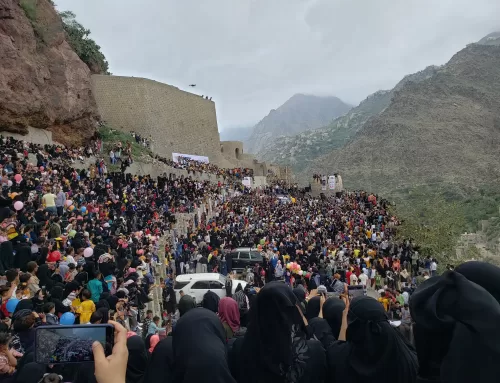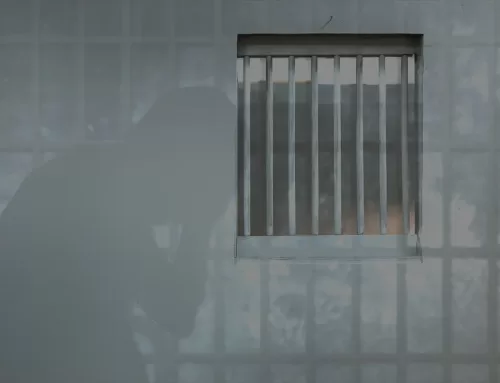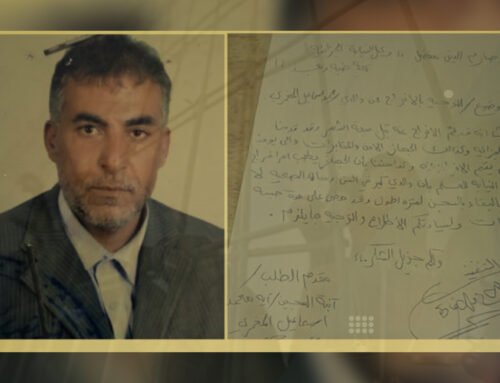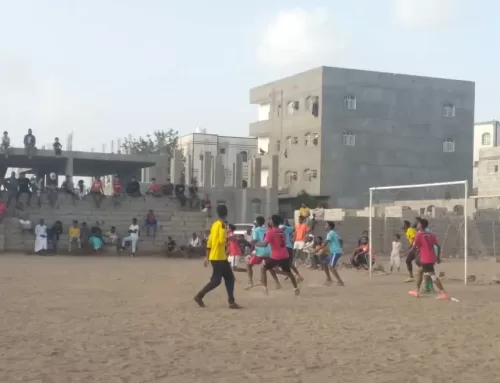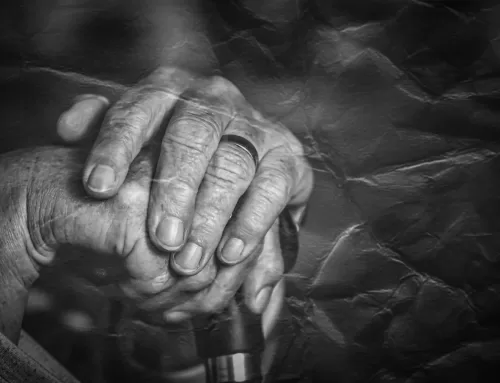It is not an ordinary house, it’s more than a home
5 December 2021
Manal Al Qadasi
As I reached the stairway to the lane, I felt as if I were on my way to death.
From Al-Furn alley in Al-Rawda of the Qahirah District in Taiz city, you begin to walk on foot, which can barely carry you to the danger that awaits you.
“Where to?”, “These are dangerous locations and no-go zones,” warned someone we met at the entrance to the steps leading to the Kalaba neighborhood.
Throughout the years of the war in Ta’iz, we have not been spared from death or injury, but at this moment I was as close to it as possible. I completed my way, directly facing the sniper. Many images flashed through my mind; close relatives who do not know that I am here right now, days I haven’t lived yet and seem so far away at this moment, imagining many scenarios as these minutes passed. What frightened me most was to get a visible scar.
I arrived at Kalaba neighborhood – the dismal place far from life since the outbreak of the war- where I met Hanan Abdel Aziz (37 years), a mother of four, one girl and three boys. Since May 1, 2015, the family has not left their home, which is located on the front lines facing the Central Security Camp, which has been controlled by Ansar Allah-Houthi group since the beginning of the war.
Following the first strike by the Saudi-led coalition on the Camp, all residents of the surrounding area moved to safer provinces or returned to their villages.
All those who left their homes believed it would be a matter of few days and they would be back. This war, now close to its seventh year, was never on the mind of any of us, as the displaced started a new life from scratch.
This family, which remained in the face of the cannon, had no options to escape and survive, so they remained in their home, as the last of the guards. Hanan told me about the first two years of the war..
“We experienced a horrible and harsh period in the first two years of the war,” she said, her voice filled with terror and fright. Even throughout the day, we did not leave our house. The neighborhood had become desolate, with only us and three other families remaining in the upper lane, meters away, covered by high buildings, so the sniper couldn’t see them clearly. We stayed in the dark at night. The sniper will target any light.”
The enlarging of her eyes, the movement of her hands, and the shaking of her voice all testified of the fear she was experiencing, as if it were one of her children.
“Two years in which we did not see life as if we were in a grave!,” she added.
A sniper from the Ansar Allah( Houthi( group was stationed in a small chamber at the top of the Central Security Camp hill, around 800 meters away from the neighborhood. Another sniper from the group was in the lower part of the neighborhood, in a six-floor white building that had been captured at the start of the war. He was around 250 meters away from this family’s house, which is the last house in the Kalaba area controlled by the internationally recognized government forces in Taiz.
Even if a cat or a dog walked in, the sniper would target it. He fired at the source of any sound. Hanan used to go out all by herself to get her needs, even though if it was a risk.
“Whenever we left, we weren’t guaranteed to return,” she explained, “so we would walk 100 meters with Central Security behind us.” We arrive at the stairwell that leads to Furn alley in Al-Rawda. We had to climb a hundred steps facing Central Security, and we could be targeted. We did, however, know when the sniper was awake. For example, we hear gunshots from sunrise until 9 a.m., then everything is silent until evening, when he begins to strike different locations. But we see that as a warning not to leave the house!”
“When we reach the Furn alley,” she continued, “the security camp begins to disappear, and here you start to catch your breath, but you must hurry back before sunset, walking back the same road, with another round of tension and fear.”
“We never thought of leaving our house,” said Hanan describing how they stayed in the area despite the extreme danger. “My husband never accepted this option, he spent a lot in building the house, and if we were to leave it, we would not return to find it is there, they would have occupied it, and we will not be able to take it back from them afterwards. The life of dislocation is more difficult.”
“I don’t feel safe at all,” she went on to say. “I was always tense. My two boys attend Al-Siddiq School near the Sinan intersection, while my daughter attends Zaid Al-Mushiki School in the Al-Rawda neighborhood. They walk to school around 6 a.m., and I stay inside the house, impatiently awaiting their return.”
“I’ve been like this for seven years. My children have no concept of life. My youngest (8 years old) went to the Houban area to visit his uncles. He saw aspects of life there. When he saw cars and their lights at night, he gasped in amazement. When he got to the park, he wouldn’t stop running around and playing, asking questions as if he had just emerged from a cave!”
Hanan’s family did not escape direct sniper bullet hits as a logical result of being in this dangerous corner of the world. Hanan’s son and her husband were injured at various points throughout June 2021. On June 6th, the sniper shot her son, Ali (17), in the left leg. Her husband Abdullah Al-Sayed (45 years old) was shot in the right hand two weeks later, on the 27th of the same month.
When I got to their home Hanan’s daughter was cutting trees from around the house to take them to the side where the sniper was stationed to further block his line of view after he targeted her brother and father right next to the house.
When I arrived at their house, Hanan’s daughter was cutting trees from around the house and transporting them to the side where the sniper was stationed in order to further block his line of sight after he had targeted her brother and father directly next to the house.
Desolation is the best description of this bleak place. I saw traces of dry blood on the ground. No house is free from destruction and marks of shells. In a strange paradox, trees grew in places where life had vanished. Some of the trees that grew on the asphalt road helped to hide those who remained in the place from sniper.
What this family is suffering from has been suffered by other families on the upper part of the area, but not to the same extent; they are a little far away from the sniper, a distance of about 350 meters, and the presence of high buildings behind them made them more secure, fortunately.
In Yemen, it is quite tough to leave the home where one grew up. Some are unable to bear it and would rather remain in danger than leave the home in which they have spent a lifetime building and bonding with the soul. In every corner of it there is a story and a memory, and during these years, in particular, it witnessed many difficult and terrible memories that increased its formidability. This is no ordinary house; it is the only witness to all this absurdity.


